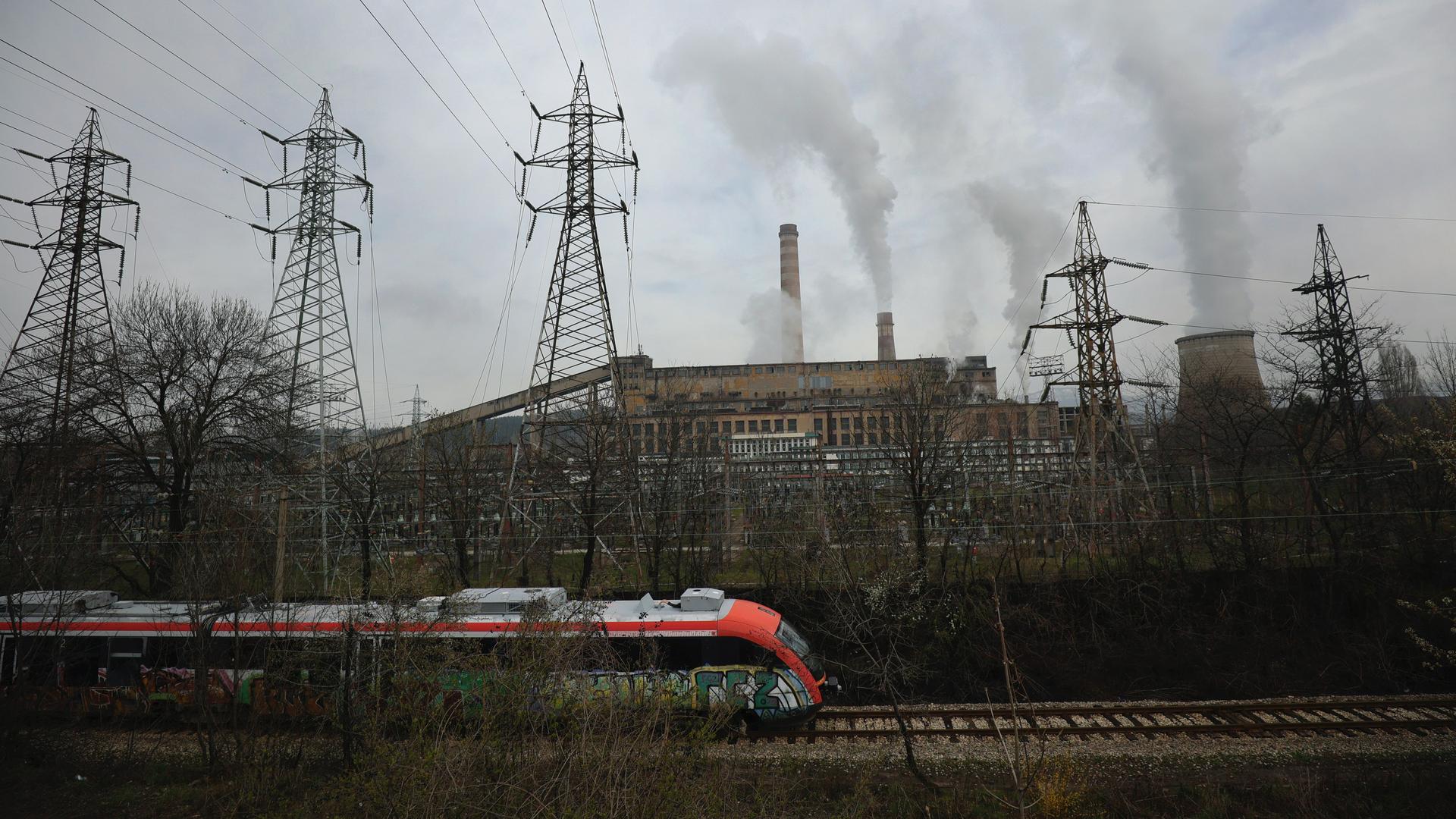The European Union is proposing a ban on Russian oil imports with its sixth set of sanctions. The decision is being discussed by EU leaders in Brussels this week.
“[Russian President Vladimir] Putin must pay a high price for his brutal aggression,” EU Commission President Ursula von der Leyen said Wednesday when introducing the package.
If the new sanctions are approved by all 27 member states, Europe would stop buying crude oil from Russia within six months and refined products by the end of the year, to allow countries to find alternate sources in an “orderly” transition, von der Leyen said.
“It will not be easy, because some member states are strongly dependent on Russian oil. But we simply have to do it.”
“It will not be easy, because some member states are strongly dependent on Russian oil,” von der Leyen said. “But we simply have to do it.”
About 60% of Russia’s oil exports go to Europe.
Hungary and Slovakia, which get about 60% and 90%, respectively, of their imported oil from Russia, according to the International Energy Agency, have said they do not support an embargo and will push for an extension to the timeline.
Related: As Germany reckons with Russian energy, this village is caught in the crossroads
The proposed ban comes after Germany dropped its opposition to the move. Europe’s largest economy has reduced its dependence on Russian oil from about a third of its supplies before the war to about 12% today.
In an interview with German public broadcaster ZDF this week, Robert Habeck, minister of economy and climate protection, said that Germany would not stand in the way of an embargo.
He acknowledged that prices will go up if Russian oil supplies are shut off “and that is the price that we can and must bear. But it no longer means that the entire economy will collapse.”
Most of the remaining Russian oil flowing to Germany goes to a refinery near the border with Poland that supplies Berlin. The refinery is owned by Rosneft, Russia’s state-owned oil company, to refine Russian oil. And it supplies the vast majority of Berlin’s gas stations.
Related: ‘Their lives collided with war’: Ukrainian refugees in Poland open their own schools
“We have a problem here that we’re trying to solve,” Michael Kellner, who represents Berlin in the German Parliament, said on German TV earlier this week. “Namely, that we have put critical infrastructure into Russian hands.”
The German government is now pushing a proposed law that would allow it to take temporary control of key energy infrastructure. If the refinery were taken out of Russian hands, Kellner said, oil could be shipped to a port in Rostock to meet about 60% of the refinery’s demand. Poland, too, has said it will help, he added.
However Berlin resolves this problem, prices at the gas pump are likely to rise higher.
The price of crude oil jumped 3% on Wednesday with the news of the EU’s planned embargo.
Back in March, gasoline shot up to $9 a gallon in Germany, though it’s ticked down a bit since.
Those costs have been the most visible impact of the war so far for many Germans, including Fabien Neumann, an optician who lives in western Germany.
“I have to pay much more for [gas for] my car,” she said.
Related: ‘Home is home’: Ukrainians in Poland consider options as Russia’s war enters new phase
But, she said she thinks that rising gas prices from an oil embargo would be worth it.
“I think we have to stop Putin, so I think everyone has to pay a little bit more for stopping the war.”
“I think we have to stop Putin, so I think everyone has to pay a little bit more for stopping the war.”
Officials in Ukraine have been calling for a full embargo on Russian energy for weeks.
Moscow rakes in $850 million a day in natural gas and oil sales to Europe.
Related: At the mouth of the Black Sea, a ship spotter watches for clues amid Ukraine war
But some Ukrainians who have lived through the horrors of the war are skeptical that an embargo would force Putin to change course.
Ielyzaveta Abrosimova fled from Kharkiv with her family in early March and is now living in northeastern Germany.
“There are so many sanctions already made,” she said. “The whole world is shouting, Ukraine is crying and shouting. And unfortunately, it goes on. Personally, [Putin] doesn’t feel that pressure, no matter what you stop.”
The EU’s latest sanctions on Russia would also include penalties targeting Russian military officers, its largest bank and three Russian broadcasters.
Our coverage reaches millions each week, but only a small fraction of listeners contribute to sustain our program. We still need 224 more people to donate $100 or $10/monthly to unlock our $67,000 match. Will you help us get there today?
